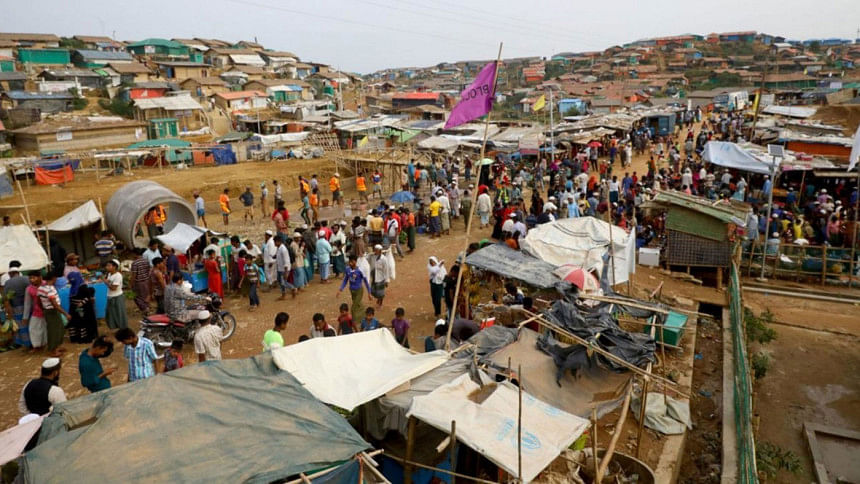Giving Rohingyas livelihood options

The UNHCR chief Filippo Grandi has called for making livelihood options more available for the Rohingya refugees in Bangladesh, and we agree that it would indeed be "risky" to make them into a dependent group for so long. The Joint Response Plan (JRP) by the UN, Bangladesh and other aid agencies was aimed at mobilising USD 943 million to support the nearly one million Rohingya refugees and five lakh members of the Cox's Bazar host community. Surprisingly, only around 35 percent of the requirements has been pledged so far, amounting to USD 340 million. While we hope that donor agencies will live up to their pledges and agree that repatriation is the "ultimate solution", we do think the refugees should have the opportunity to earn.
Given the current Covid-19 situation and Myanmar's own political crisis created by the military coup in February, repatriation seems to be unlikely in the foreseeable future. It is, therefore, only logical to not keep the Rohingyas stuck in a situation where they only depend on foreign and local aid. A good start would be for the UN to swiftly assess how it will go about its operations in Bhashanchar, an area hosting about 20,000 refugees and with a capacity for 100,000.
We would urge the government, the UN, and other international bodies to work together to create viable employment and livelihood opportunities for the Rohingya refugees. We believe it is crucial for them to be able to find their own identities, separate from either the Myanmar or Bangladeshi narratives. The large number of Rohingya youths, for instance, need to be productively occupied. It is commendable that Bangladesh has made it possible for Rohingyas to get access to education and some of them are engaged in various activities for their livelihoods, but more needs to be done to alleviate the difficult state of limbo they are facing. Repatriation is surely the ultimate goal and would be ideal for all parties involved. But there is no certainty yet for when mass repatriation would be possible. So local and international bodies alike must help enable the Rohingyas to build/find their own unique livelihoods, until they can be repatriated.

 For all latest news, follow The Daily Star's Google News channel.
For all latest news, follow The Daily Star's Google News channel. 




Comments